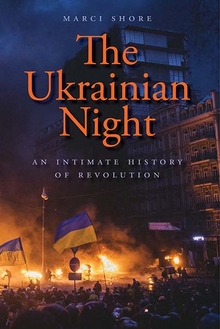Published by New
Canadian Library
1966
240 pages
240 pages
ISBN: 9780735236035
Summary by Darcia Hasey
The main character of this
novel is Rachel Cameron. She is also the narrator and it is told in the first
person present tense with much of the novel being an inner monologue.
Rachel feels trapped in her
small-town life having also grown up in this town called Manawaka. She is
restless and lonely.
Rachel lives with her mother
May who is ageing rapidly, has a heart condition, and demands much care. Rachel
would like to move and desperately wants to be free of her reputation as a
nice, good girl and daughter always doing the right thing. Margaret Atwood in
her afterword describes Rachel as being in “a prison which includes filial
devotion, self-sacrifice, concern for appearances according to St. Paul, a
sense of duty, a desire to avoid hurting others and a need to be loved”.
So Rachel begins to take
risks, pursue passions, make mistakes, have successes and failures. In other
words, she is trying to break from these socially imposed constraints. It’s
like growing up, which is exactly what happens to Rachel over a two-month
summer period. But in this case it’s moving from a prolonged adolescence to
mature adulthood.
Among other things happening
in her life, Rachel meets Nick Kazlik. She falls in love. They have an affair.
She is serious but he is not. He eventually leaves.
As her mother deteriorates,
Rachel becomes more paranoid about her own health and ageing. She doesn’t want
to have only lived and died in Manawaka. So she ends up finding the courage to
accept the risk of leaving, accept whatever the unknown future holds, and
accept responsibility to herself not her mother.
The Ukrainian Connection by Uliana Pasicznyk
The
man who enters Rachel’s life during the summer depicted in this novel is Nick
Kazlik, whose grandparents arrived in Canada as young people from a part of
Ukraine called Galicia. A couple of years older than Rachel, Nick grew up in
Manawaka, too, and Rachel remembers him going to her high school. Rachel also
has a pleasant childhood recollection of Nick’s father, Nestor, the local
milkman who sometimes gave her a ride in his milk truck, as a sociable and
jovial person who made her laugh.
Nick,
now a high school teacher in Winnipeg, with a university degree like the one
Rachel wanted but couldn’t pursue, has come back for the summer to tend to his
parents. But Nick’s relationship with his father is contentious. Nick has no
affinity to the Ukrainian language and history that are of great importance to
his father, nor to the dairy farm that Nestor so wants Nick to take over. He
regards his father as an embarrassing and oblivious buffoon, now also an aging
one. Rachel realizes how Nick feels, but is puzzled by it. She knows that her mother
disdains the low-class Ukrainian “Galicians” and “Bohunks” who live in Manawaka
amidst the descendants of the Scottish immigrants who arrived earlier and form
her own ethnic group. But Rachel herself does not share that view: instead, she
is curious about the culture to which Nick and his parents belong, and why Nick
feels about it as he does.
What
Rachel does not realize is that the cultural tugs-of-war between Nick and his
father have given rise to wounds and demons in the man she loves as powerful as
the tensions and stunted coping mechanisms formed since her own childhood in
relation to her mother and long-deceased father.


